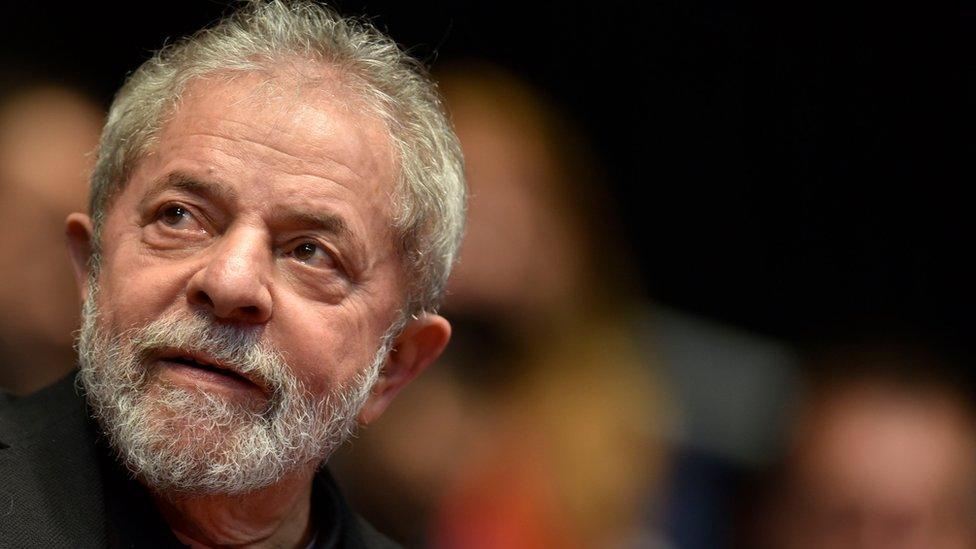Lula investigation divides Brazilian families
- Published
The Chiarello family explain why they enjoy arguing about politics between themselves
Sitting alongside his family, Vitor Ricciardi Chiarello is watching a TV report on the detention of former Brazilian president Luiz Inacio Lula da Silva.
Lula was briefly held for questioning on 4 March as part of a massive corruption investigation involving the state-oil company, Petrobras.
While Vitor's brother and his parents cheer when they hear the news, the 26-year-old thinks the federal police overstepped the mark.
A heated political discussion ensues.
Family strife
Similar scenes are playing out at the homes of many families in Brazil, where the popular former leader is dividing opinion.

Lula: 'Man of the people'
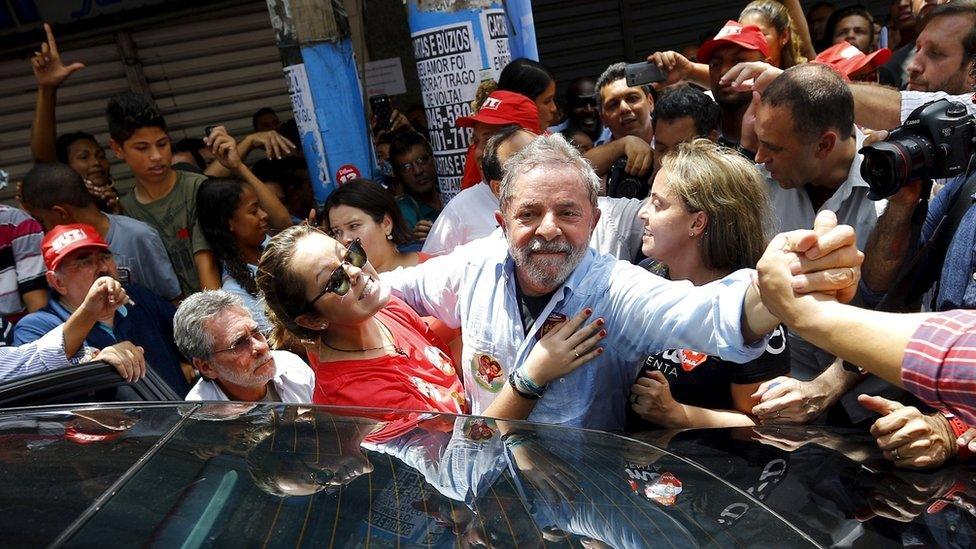
Born 27 October 1945 into a poor, illiterate family in Pernambuco state
Worked in Sao Paulo's car industry
Achieved national fame leading strikes during Brazil's dictatorship
In 1980 he founded the Workers' Party (PT), the first major socialist party in Brazil's history
Elected president in 2002 at the fourth attempt and went on to serve two terms
Pumped billions of dollars into social programmes such as Bolsa Familia that benefited tens of millions of Brazilians
When he left office in 2010 he said: "I am leaving government to live life on the streets. Man of the people that I always was, I will be more of the people than ever before"
Currently under investigation over his deals with construction firms

At the Chiarellos', Vitor is the only one backing Lula's left-wing policies.
He was granted a ProUni scholarship, a programme created by Lula's government in 2004 to help students from poorer families pay for private higher education.
The scholarship is one of the examples Vitor names as being part of Lula's legacy, but his relatives are not convinced.
"It's clear to me that Lula is an egotistical and narcissistic person who only does things for himself", Vito's mother, Marly, says.
"The scholarship Vitor was awarded is simply what we get back from the taxes we pay", adds her husband, Oswaldo Gabriel.
Polarised
Leandro Piquet Carneiro, a professor at Universidade de Sao Paulo's Centre for Research in Public Policy, says the arguments families like the Chiarellos mirror the current polarisation in Brazilian politics.

Vitor and his mother cannot agree when it comes to Lula
"This is the first time that a leftist government that was once able to rely on strong support from both educated and less-educated sectors of society finds itself in trouble. Now those who support the government find themselves under attack even within their own families," Mr Carneiro says.
But he says Brazil has not yet become as divided as other neighbours in the region.
"As lively as the debate here is, we are still moderate compared to what is going on in Argentina, Venezuela and Chile, for example," he says.
Mr Carneiro says that broader access to information and the internet have fanned the debate.
But he warns that the internet can also isolate people from opinions other than their own.
"You tend to connect to your network of contacts and that defines the kind of information you receive," he says.
"Add to that the fact that people rely less and less upon information provided by professional journalists, who are capable to moderate these topics more appropriately," he explains.
'Cornered'
Twenty-seven-year old actor Guilherme Carrasco Neto says he feels "cornered" when talking politics with his family.
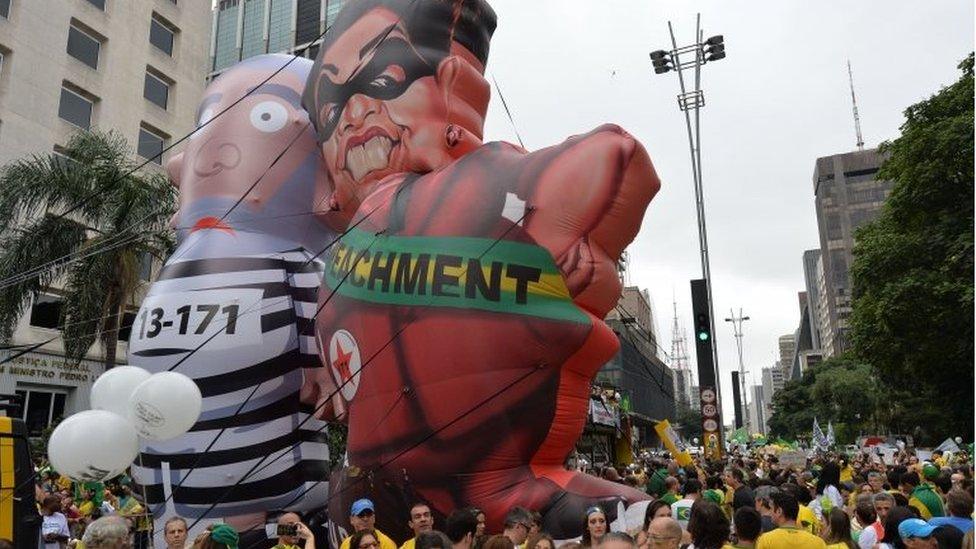
Inflatable dolls of Lula in prison stripes and President Rousseff have become popular at anti-government demonstrations
Mr Neto is critical of the way Lula was taken away by police for questioning, which he says was an attempt to portray the ex-leader as a criminal.
He says his relatives gang up on him when he defends the former leader.
His mother is very critical of the Workers' Party (PT) administration and while his father tries to tone down the debate when it gets too heated, Mr Neto says that when his brother and sister-in-law pitch in it is "overwhelming".
"My brother is opposed to the policies of the Workers' Party. I am not a party member, but I do respect the social advances brought about by their government," he says.
Mr Neto says that his sister-in-law is one of those who benefitted from Lula's policies.
She, too, was awarded a ProUni scholarship and got her degree in economics thanks to that scholarship.
Mr Neto says he often thinks of bringing this up in an argument with his anti-Lula sister-in-law but has so far refrained in order to avoid a row.
'Romanticised view'
Mr Neto's older brother Daniel is 35.
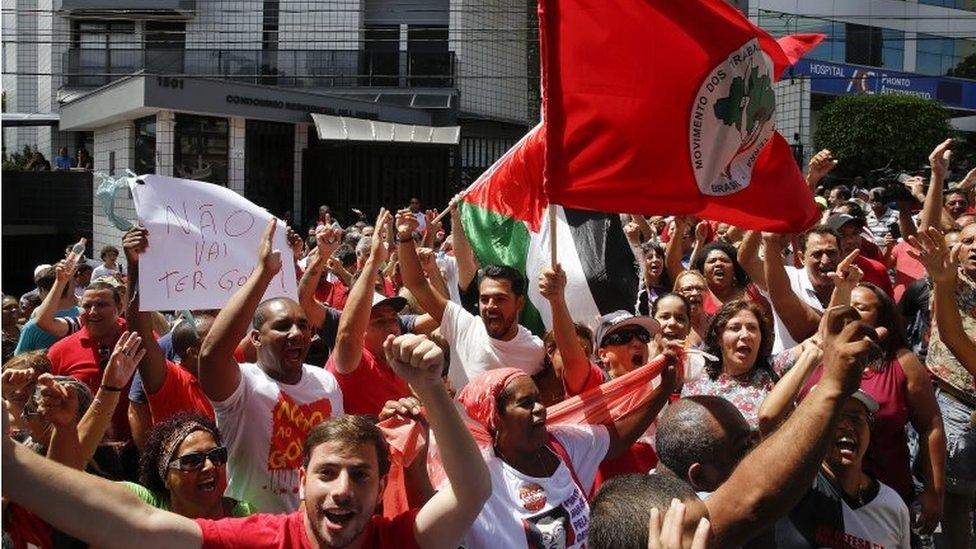
After Lula was taking to a police station, his supporters took to the streets outside Lula's flat
He thinks Guilherme has a "romanticised view" of politics which he blames on his youth.
"He [Guilherme] believes that capitalism and the market economy are bad," Daniel Neto says.
"He thinks that businessmen must be regulated. We try to teach him that you can't produce if you don't make money.
"Handing out money to people won't stimulate growth."
'Crook'
Daniel Neto's view is typical of those who are critical of Lula.
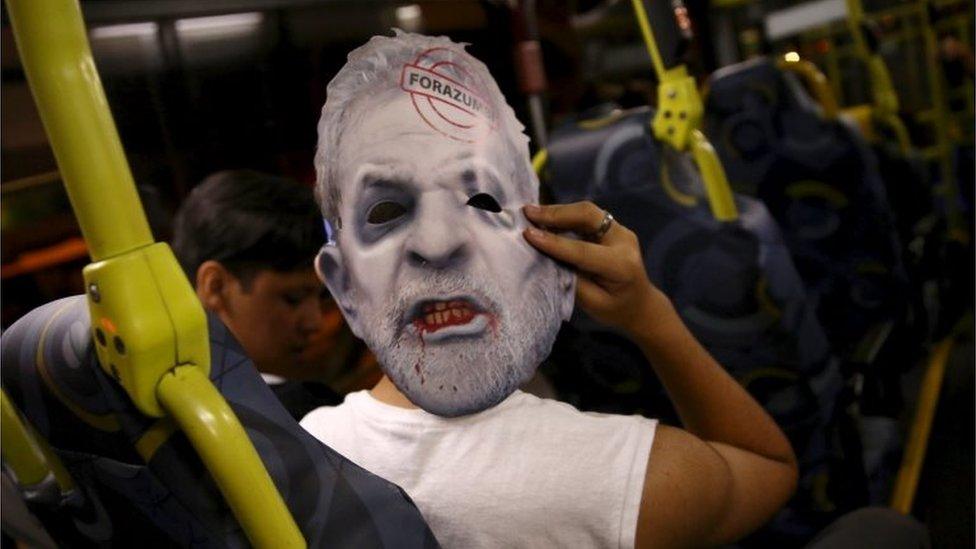
Critics of Lula say the former president is a crook
They argue that the former president's popularity was propped up by the economic stability Brazil experienced during his two mandates from 2003 to 2011, a stability they say was fuelled by a boom in commodity prices rather than Lula's economic policies.
With the Brazilian economy going through its worst recession in two decades, Daniel Neto reckons that the only way out of the current political and economic crisis is to impeach Lula's protege and successor in office, President Dilma Rousseff.
"This government is a total fiasco. We expected it to be bad but it's turned out worse," he says of Ms Rousseff's administration.
"The corruption scandals and Ms Rousseff's incapacity to play the political game is ruining the country," he says.
And as for Lula's generous social programmes, the former leader "only distributed the extra money that came in," he says.
"He's a crook," he adds.
- Published10 March 2016
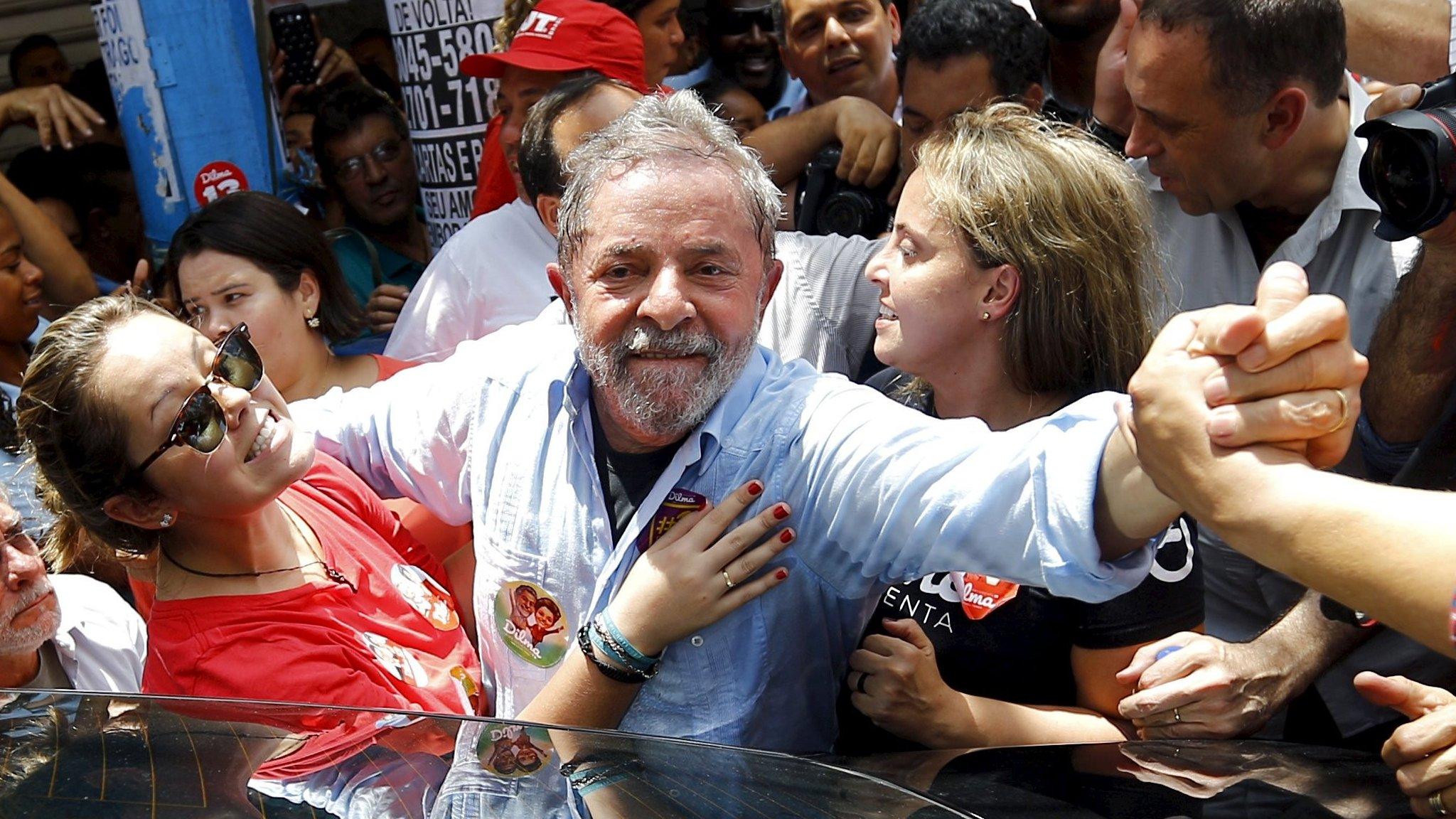
- Published4 May 2016
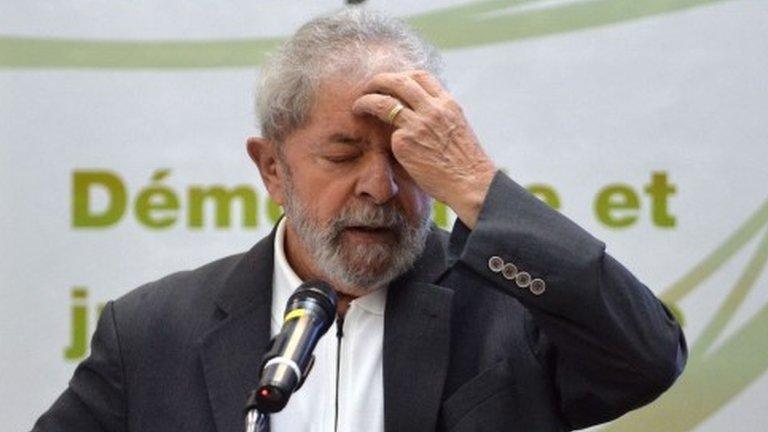
- Published11 June 2019
